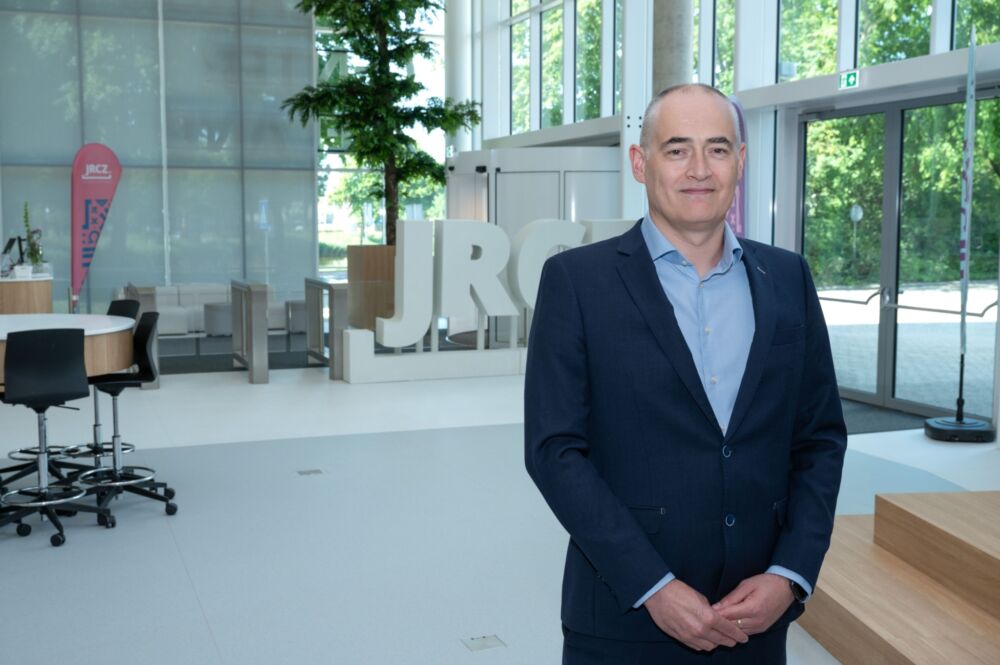Windmills, batteries and solar panels. These are just a few of the essential products for the energy transition that require rare raw materials. The Critical Materials research group of lector Robert Trouwborst is conducting research together with students into how you can make the energy transition more sustainable. They do this by, for example, looking at how you can reuse more of these types of products, how you can make the value chains more sustainable and whether there are alternatives for the rare raw materials.
The research group started in the spring in the Joint Research Center Zeeland, the laboratory that is the home base of the research group. During the kick-off, the starting signal was also given for the NextGen Energietalent community. Both initiatives fall under Energy Campus Zeeland, the multi-year project of HZ University of Applied Sciences, Scalda and Dockwize.
Don't close your eyes
The basic idea behind the group's research is that a future energy system must be 'affordable, reliable, safe, sustainable, fair and participatory'. This is not yet the case. Take the example of electric cars, which cannot drive without cobalt, a raw material that is currently mainly mined in Congo. Children often work in unsafe and unhealthy conditions in the cobalt mines. "We do not want to close our eyes to that," says lector Robert Trouwborst. "We want to work on a green energy transition from a broad perspective."
Some rare raw materials may eventually be replaced by 'clean' minerals that come from Europe or have been recovered from waste flows. The group is also investigating how products such as windmills and solar panels can be (better) recycled. "We do not want a new mine to be dug for every windmill in Zeeland. Our energy transition must be circular. We are going to make that happen."

Merging specialisms
Nine researchers have now joined. They work partly for the research group, partly for the JRCZ. “We have combined a number of specialisms that are important for making the energy transition circular,” Trouwborst explains. “Chemists, for example, can analyse certain raw materials and see what we could do with them, data scientists can make calculations around waste flows and play an important role in imagining future value chains and engineers have the skills to build new products with waste materials. Logistics is also an important part, because we also have to make that more sustainable. By connecting all the specialisms, we can really make an impact. In my opinion, these are the most important forms of expertise, but we can certainly add more in the long term.”
Important role for students
Trouwborst emphasizes that there is an important role for students, who together form the NextGen Energietalent community. For example, under the supervision of researchers, they will create a sorting robot that recognizes and can sort different types of batteries with the help of AI. “We want our research to be a catalyst for education. That is also what the JRCZ is intended for. Things may also go wrong. In fact, we would like that. Let the students come up with a hypothesis, which we then test. What is more fun and educational for students than learning by doing things? Together we want to innovate.” According to Trouwborst, Zeeland is an extremely suitable area for his research. Ports such as the one in Vlissingen (North Sea Port) play an important role in the storage and transit of critical minerals for Europe. “This offers opportunities to work together to make heavy industry in our canal zone more sustainable, but also to become a forerunner in the field of clean minerals for the energy transition.”
'What is more fun and educational for students than learning by doing things? Together we want to innovate'
Biography
Dr. ing. Robert Trouwborst is a lector at HZ University of Applied Sciences. He is currently working on building a research group and lectureship Critical Materials. His background is a combination of inorganic chemistry, MSc. Utrecht University and oceanography, University of Delaware. After a period of academic research, he worked in the dredging industry and then became active in applied research at TNO, Deltares, WUR and HZ. Initially mainly in research, but soon as department head, branch director and leading lecturer of the Applied Research Center Technology Water and Environment.
Robert always wants to work at the intersection of application, research, education and innovation. And certainly not alone, but with an ambitious team of researchers who want to make an impact and discover something new every day together with the students through experiments and projects. His research group works on the circularity of materials of the regional energy transition. A prerequisite for a successful energy transition to a sustainable world.
